2025 Comedy Show & Auction Sponsor Spotlight: Zehra Patwa
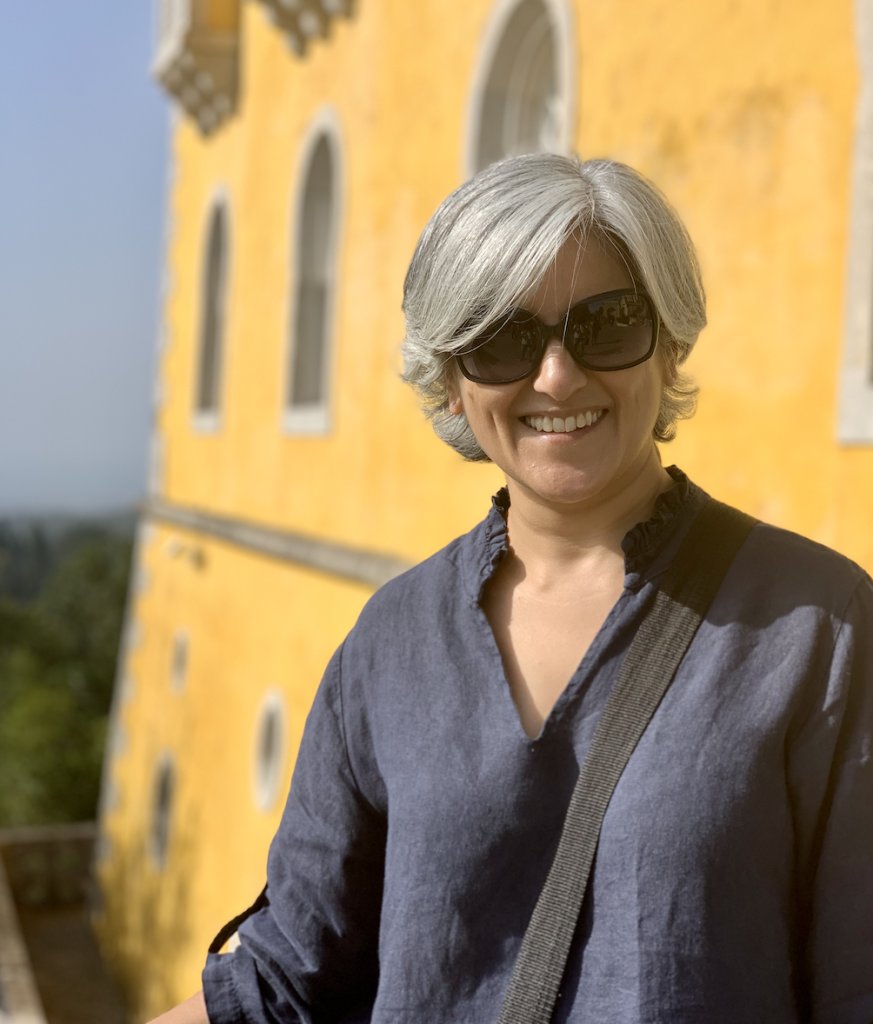
Sahiyo will host its third annual Women’s Day Celebration & Silent Auction with the goal of raising $15,000 in support of our work to end female genital cutting. The auction will open on Wednesday, March 5th, 2025 and close on Sunday, March 9th, 2025. During this five-day fundraising event, we’ll celebrate women’s voices with comedy, stories, and entertainment. We’re incredibly grateful to all of our generous sponsors and supporters who have contributed some wonderful auction items. To uplift their work and thank them, we’re highlighting a few and why they support Sahiyo. And if you, too, would like to contribute in some way, click here to donate. Today, we’re highlighting Zehra Patwa, who currently serves as Chair of the Sahiyo US Advisory Board. She is also the co-founder of WeSpeakOut, an organization that strives to work for equal rights for Bohra women in all spheres of life, specifically, on Female Genital Mutilation/Cutting (FGM/C) or khafz. Can you tell us about your organization and its mission? WeSpeakOut is an organization dedicated to uplifting equal rights for Bohra women in all spheres of life. Specifically, we focus on FGM/C, all agree that this harmful practice has no place in our lives, and we want it to be banned. What motivated you to sponsor Sahiyo’s 2025 CelebrateHer: Comedy & Auction event? Sahiyo and WeSpeakOut have been working together for many years, and the programs that Sahiyo provides in the field of the anti-FGM/C movement have been impactful in so many ways. The CelebrateHer Comedy & Auction is the perfect celebration of those who work to support and protect women and girls from this harmful practice. How do you see your sponsorship making an impact in raising awareness about FGC prevention and support for survivors? Watching the comedians perform on March 5 is a fantastic way to support Sahiyo! While what we do can be hard and heartbreaking, raising awareness through a lighthearted event acknowledges that we can support the work in a fun way, and that’s the impact I hope my sponsorship has. What message do you want to share with our readers about why supporting Sahiyo’s mission is important? Sahiyo has been instrumental in bringing about awareness of FGC in the US and all over the world. The organization works in an incredibly sensitive way to ensure that education and support are provided in a way that meets its audience where they are. That audience includes survivors of FGC, anti-FGC activists, health care providers, and the general public. What personally inspires you or your team to advocate for social justice and community well-being? As someone who has a privileged life, despite being an FGC survivor, I wanted to be able to support those who do not have the benefit of the incredible support network that I have. At WeSpeakOut, we have vowed to ensure girls’ lives are protected from what we endured. Is there a particular moment or story in your work that has stood out as especially meaningful? The first time I attended a Sahiyo Activist Retreat in 2018, I was burned out and on the verge of giving up my activism. The retreat was a turning point in my life by giving me the support I needed to carry on, so that I could help many more people. I will be forever grateful for Sahiyo for recognizing that this work is hard and for providing the support activists need.
Intern Spotlight: Policy Intern Rachel Aguilar
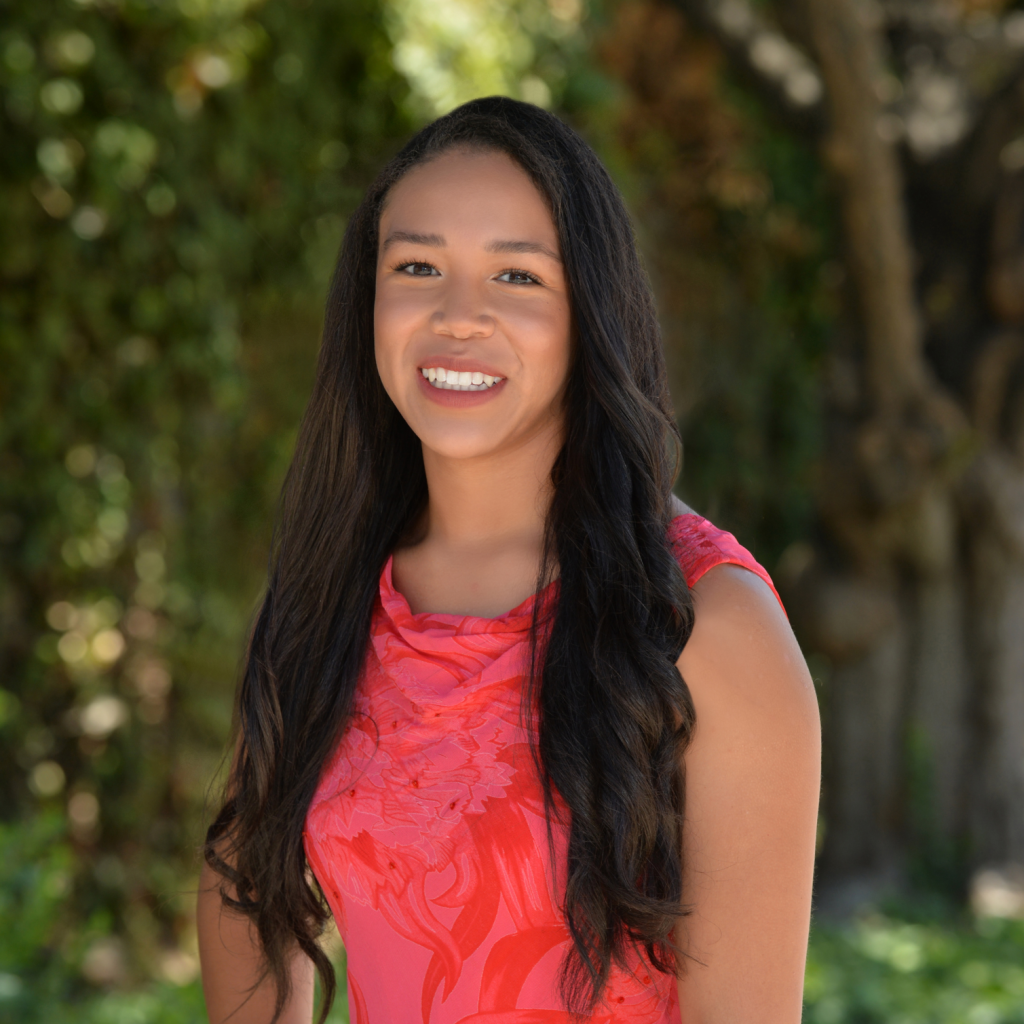
Rachel Aguilar is a fourth-year at the University of Chicago where she is a Dean’s, University, and Dewey Scholar. She majors in Political Science and minors in Inequality, Social Problems, and Change. Rachel recently joined Sahiyo as a Policy Intern. How did you first get involved with Sahiyo? I first got involved with Sahiyo because I was intrigued by the organization and despite learning about FGM/C in other countries, I did not know that it occurred in the US. Learning that even the “husband-stitch” was considered FGM/C, got me interested in interning for Sahiyo and supporting the movement to end FGM/C. What does your work with Sahiyo involve? I am a policy intern! This means that I work to support Sahiyo and various policy-focused state coalitions in their work. I help write and review information packets, compile contact information, reach out to partner organizations, track legislation and official statements, and more. How has your involvement with Sahiyo impacted your life? Working with Sahiyo has exposed me to issues within our society, legal, and healthcare systems that I was not previously aware of. It is empowering to be involved with work that aims to support women. I am also incredibly grateful to have an opportunity to experience and participate in the policy process. What words of wisdom would you like to share with others who may be interested in supporting Sahiyo and the movement against FGC? FGM/C affects more people than you can imagine. I encourage people to educate themselves and find ways to get involved. Supporting Sahiyo and the movement against FGM/C can be as simple as signing a petition or writing a blog post.
Intern Spotlight: Fundraising & Auction Intern Lisa Zhu
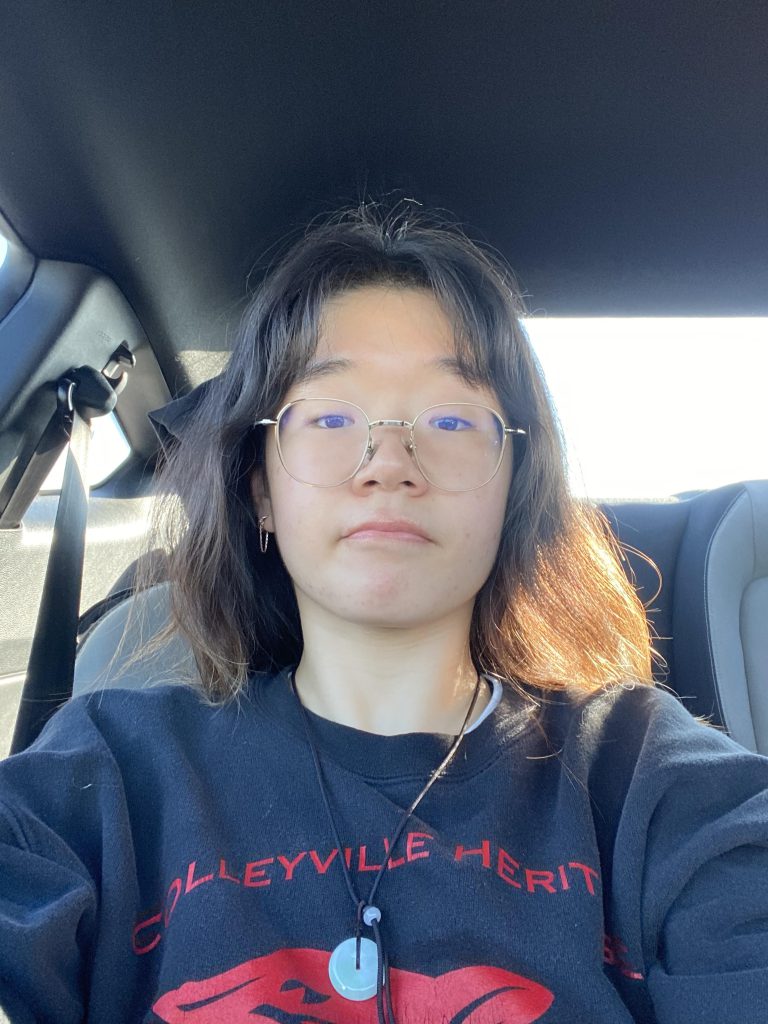
Lisa is currently a high school student at Colleyville Heritage High School in Dallas, Texas. At school, she participates in DECA business competitions, fundraises for the Asian Food and Culture Club, and likes physics and math. In her spare time, she enjoys figure skating, spending time with her family, and reading. Lisa hopes to make a positive impact on her community regardless of the career path she takes. She is excited to help make positive change for women all around the world through this opportunity with Sahiyo. When and how did you first get involved with Sahiyo? When I first discovered the internship position, I was immediately drawn to Sahiyo’s mission. At that time, I had never heard of female genital mutilation/cutting (FGM/C), but as I read more about it on Sahiyo’s website, I became deeply troubled by this form of gender-based violence. I was especially shocked to learn that FGM/C affects girls of my age in the U.S. I felt compelled to contribute to the efforts to end this issue, and this internship provided the perfect opportunity to do so. At the time I applied for this position, I was still exploring potential career paths. I wasn’t sure which direction to take yet, so this internship presented a unique opportunity to gain hands-on experience in the nonprofit sector while aligning my work with a cause I felt passionate about. I saw this role as a way to not only contribute to a mission I believe in, but also to explore the field of social justice and advocacy, which has become a growing interest of mine. What does your work with Sahiyo involve? As a Fundraising & Auction intern, I assist in finding funding opportunities to support Sahiyo’s programs. One aspect of my work involves conducting research to find relevant grants for Sahiyo and drafting grant applications. Over the past couple of months, I’ve had the chance to develop my grant writing skills by working on smaller grants, and I am now gaining experience in completing more complex, larger-scale grants. Additionally, I actively solicit donations for Saiyo’s annual Silent Auction, curating compelling travel packages to attract contributions from generous donors. How has your involvement with Sahiyo impacted your life? As someone with no personal connection to FGM/C, I initially questioned whether I had a place in this movement. Additionally, as a high school student, I felt under qualified to make real, impactful change alongside experienced adults. I was anxious my age and lack of knowledge of FGM/C would prevent me from being able to contribute meaningfully to a global cause. However, I quickly discovered that the community working to end FGM/C is open-minded and welcoming to anyone who shares the common goal of addressing this critical issue. My peers on the Development team, seminar panelists, and other members of the community have consistently been responsive to my questions—whether about FGM/C, activism more broadly, or professional development. Their patience has shown me that, regardless of the fact that I’m a young person without extensive experience in a professional setting, the community will help you if you’re willing to learn about FGM/C and put in effort to end it. Regardless of the career path I ultimately pursue, the work environment I’ve experienced at Sahiyo has provided a valuable example of a compassionate yet results-driven workplace. Moreover, my enhanced understanding of gender-based injustice, both globally and domestically, has equipped me to prioritize inclusivity and cultural awareness in any field. I now feel confident that I can contribute meaningfully to social justice work, and this experience has reinforced my commitment to advocating for marginalized communities, no matter where my career takes me. What words of wisdom would you like to share with others who may be interested in supporting Sahiyo and the movement against FGC? If you’re on the fence about volunteering, interning, or working with others in this movement to end FGM/C because of a lack of skills, personal connection, or any other reason, please know that everyone in the community is more than willing to teach, support, and collaborate with you. Whether you’re just beginning to learn about FGM/C or you’re already well-versed in the issue, your willingness to engage, ask questions, and put in the effort to make a difference is what truly matters. The most important step is taking that initial leap to get involved—and once you do, you’ll find a community that is eager to welcome you, teach you, and work alongside you to make a real impact.
Donor Spotlight: Brad Mazon

Brad Mazon, PhD, is a Bhaiyo volunteer, nonprofit consultant, husband, father, and an advocate against female genital mutilation/cutting worldwide. When and how did your involvement with Sahiyo first begin? My involvement first began I would say two or so years ago when I found Sahiyo on social media. I became actively engaged when I donated to the annual International Women’s Day fundraiser and Comedy Show. But I’ve been involved with the issue of FGM since 1988 when I was an intern at the U.S. State Department in Somalia. I have come in and out of working on the issue, through various organizations, so when Sahiyo and the Bhaiyo program came onto my radar about two years ago, I became a donor and have remained involved ever since. Why did you decide to donate to Bhaiyo, Sahiyo’s male engagement program? My time working in Somalia and my upbringing really influenced my decision to donate. I attended a conference in Mogadishu, Somalia. It was all women who had been impacted by FGM. This event made a huge impression on me because a lot of the women I met with reminded me of my mother. I was raised by a single mother and I have always been in awe of her strength and resilience. It was the same strength and resilience that I saw in women I met at the conference. I realized very quickly that had my mother been in a situation where she was cut, she likely would have never been able to provide for me and for my family the way she did. I began to understand how FGM impacts women not just physically but also psychologically and socially. It wasn’t that these women weren’t as smart or as motivated as my mother was – it was that the opportunities to thrive had been taken from them by the patriarchy that surrounded them. I also understand that the impacts of FGM are different in different contexts. Being cut in Somalia may be different from being cut in the American Midwest, but…being cut anywhere is a violation of women’s autonomy and an act of patriarchy. Why do you feel it’s so important to support male engagement and voices within the movement to end FGM/C? There’s no sex that’s greater than the other. I believe that I am an anti-patriarchy and feminist man. At the end of the day, as I have gotten older and have become a father and now a grandfather to a little girl, I have realized – and certainly living in America right now – how strong the patriarchy is on so many things. I resent in my heart, mind, and soul that men think that they have some sort of power over women. I wanted to do something as a man, coming from a male perspective that could combat that false narrative. That’s why Bhaiyo was so exciting to me. On my first call with the group, it was with men from around the world who were doing the frontline work of going into villages and speaking to people about the dangers of FGM [and] of what it could do to their little girls. I was thrilled to be a part of that work through donating. But at the same time, I was very mindful, and still am, of my white privilege and also my Western privilege in the same sense. And when I say privilege, I mean it in a structural and economic way, because I know there is beauty, wisdom, and knowledge in Africa and Asia. I wanted to be mindful of that as I engaged in conversations with these male activists who I have great respect for. But I also wanted them to be mindful that while it’s important for men to be in the conversation, women still need to be supported to speak out at an equal level. We can do that in many ways, big and small. I’ve started changing the hashtag I use in posts from #menendFGM to #menandwomenendFGM. What I’m trying to say here is that while it’s great that we’ve got men involved, let’s not do it in a way that pushes women out. How would you like to see Bhaiyo and Sahiyo grow? I think in terms of Bhaiyo, the main thing we need is more men involved. I’ve tried to do this in my circles by sharing the survey on my Linkedin and with various people in my life. I’m always shocked at how many men aren’t involved. I also feel like we need to make FGM more well-known in the U.S. through any means necessary. We need some celebrity to get men fired up about this. Or even more high-level people in our government talking about FGM. But I’m also under no illusions that I’m doing the hard work. I know those gentlemen on the frontlines going from village to village spreading this message who are the ones pushing this work, and they have my full support and respect. I also know that getting this issue into the rooms of power in the U.S. and the world beyond is key to this movement, and we can do that by talking about FGM loudly. Why do you think others should donate to Sahiyo? I think more people should donate to Sahiyo because people don’t realize that FGM is an issue that has a tremendous impact on the world. It’s shocking to me how FGM is such a quiet menace not only to survivors but also to men who are affected by it – with their wives and sexual pleasure – or the ability to have children. I’m just surprised how it’s a form of violence, yet it’s one that seemingly the world is not comfortable talking about publicly. I also want people to understand that FGM is a form of domestic violence. In the same way that we talk about abuse and other harms against women, FGM needs to be included in those conversations. And we
Intern Spotlight: Maeve Monger Events & Programs Intern
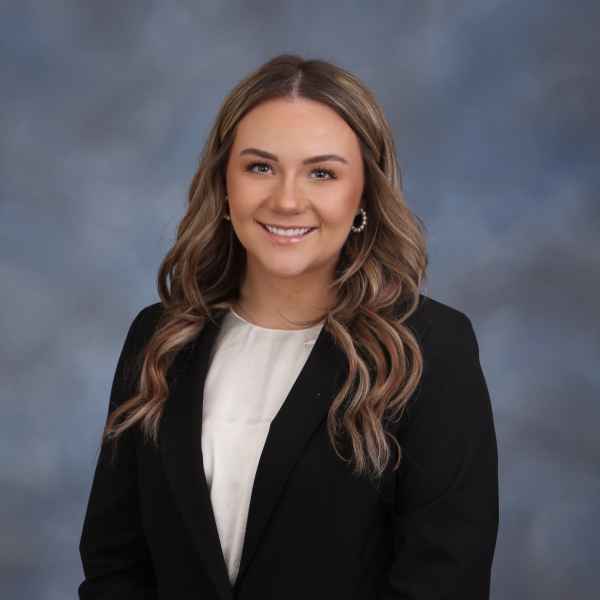
Maeve is currently an undergraduate at the University of Illinois at Urbana-Champaign pursuing a degree in Political Science and Public Relations, with an interest in citizen politics. Through her studies and female-founded extracurriculars, Maeve has become increasingly interested in advocating for women’s rights throughout the world. She is excited to be a part of Sahiyo U.S. and be able to support this progressive change. When and how did you first get involved with Sahiyo? I first became involved with Sahiyo in May 2024 when looking to get my foot in the door for non-profit work. What does your work with Sahiyo involve? Being a Programs and Events Intern with Sahiyo involves a variety of tasks. My role often involves supporting the incredible women here who work selflessly to provide resources and engagement to survivors and fellow advocates against FGM/C. I find pride in being a support system for these women that work for Sahiyo, and that I am able to provide a helping hand in these events to support other women throughout the world. How has your involvement with Sahiyo impacted your life? My involvement with Sahiyo these past few months has drastically impacted my life, opening my eyes to the survivors of FGM/C. The gravity of FGM/C is something that may have been overlooked in my life prior to working with Sahiyo because it is a topic that is not discussed as much as it should be. However, now I have become a huge advocate in supporting survivors of FGM/C. I have always had a passion for women’s rights, but my involvement with Sahiyo has only increased that and gave me a platform to speak out about women’s rights, and more specifically FGM/C. I have found it extremely fulfilling working with Sahiyo and being able to be apart of the fight to end FGM/C. What words of wisdom would you like to share with others who may be interested in supporting Sahiyo and the movement against FGC? Do what makes you passionate. Your participation in the movement against FGM/C is so much more meaningful than you may think. Move with empathy and courage, and your voice will make an impact.
Intern Spotlight: Policy Intern Sara Khattak
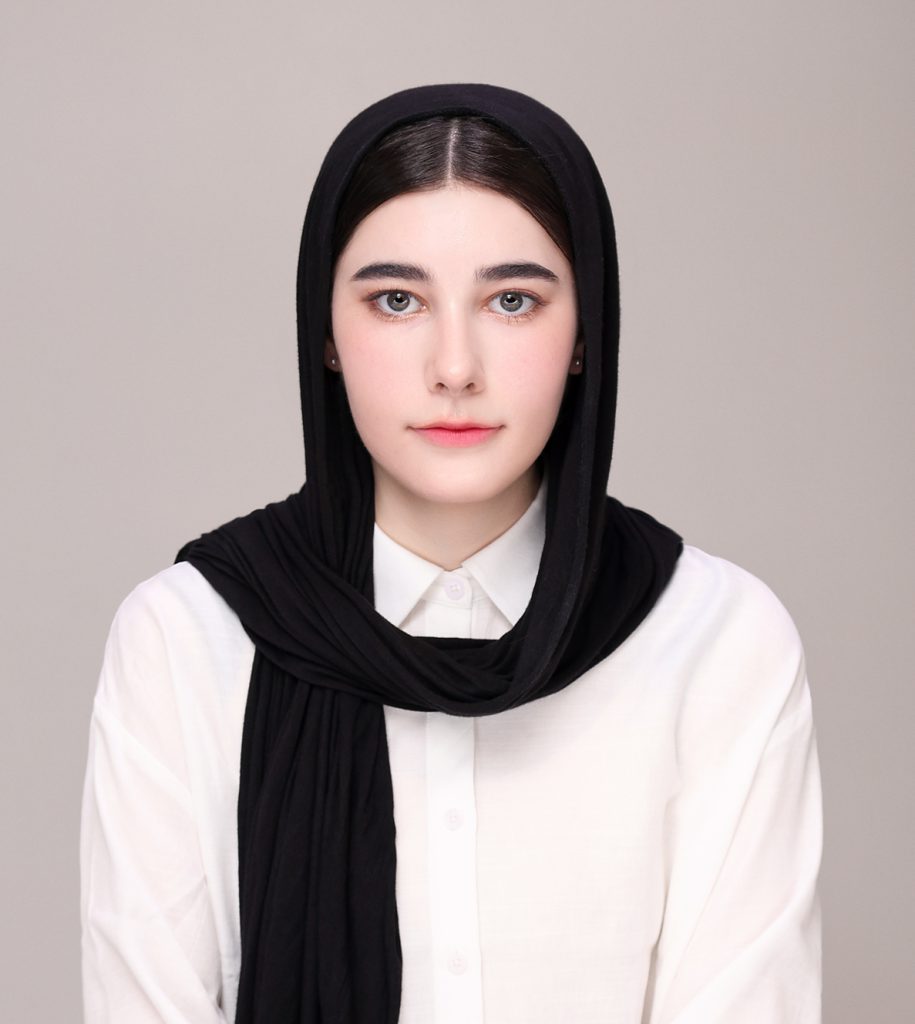
Sara is currently pursuing her bachelor’s degree at George Mason University in Chinese and Global Affairs and minoring in American Sign Language. On campus, she is an active member of the community as a Certified Personal Trainer and Executive Officer for the Fencing Club. Off campus, she enjoys staying home to read, play video games, and journal. Sara hopes to aspire to leverage her skills and interests to bridge communication gaps between diverse communities. Joining Sahiyo is part of that mission to understand cultural differences and end FGC. When and how did you first get involved with Sahiyo? I first found out about Sahiyo when I was researching FGC for a social justice philanthropy class last fall. I gathered information about the practice of FGC, who it affects, and what nonprofits were addressing the issues. I then gave a presentation to my class on the topic. While looking at Sahiyo’s website, I saw that internships were available and mentally bookmarked it for later. I applied to be an intern at Sahiyo this past spring, and then began my work with Sahiyo in July 2024. What does your work with Sahiyo involve? As a policy intern, I attend state coalition meetings, interview coalition members, and write various blogs about FGM/C and coalition work. The state coalitions have been created to work collaboratively on strengthening and advocating for policy solutions regarding FGM/C. I’ve attended meetings for the Washington, Connecticut, Hawaii, and DC, Maryland, Virginia (DMV) coalitions to End FGM/C. Each coalition is at a different progress stage, so I’m gaining a well-rounded view of the advocacy and implementation process they are pursuing. I’m also writing blogs about how to get involved with anti-FGC activism and the history of FGC in the U.S. Additionally, I’m holding interviews with coalition members to better understand their perspective within this movement and the work they have done to pass legislation. The Hawaii and DMV coalitions to End FGM/C are still in the beginning stages of building their programs, so I’m doing preliminary research on lawmakers and statistics for them in addition to providing other forms of support. How has your involvement with Sahiyo impacted your life? This is my first time working in a policy role and I have already learned so much about advocacy, writing, and communication. With a little experience and knowledge, I feel more confident in speaking out about FGC and educating my family and friends on the topic. Raising awareness is the first step for change, and it’s not as hard to get involved as people think! FGC was important for me to speak about because it’s not well-known despite its presence in the U.S. I wanted my peers to become more aware of it. What words of wisdom would you like to share with others who may be interested in supporting Sahiyo and the movement against FGC? Just join! Sahiyo has a ton of volunteers and opportunities for anyone to make an impact. Everyone who is against FGC should get involved, every bit of involvement counts, and sometimes the smallest actions can lead to unexpected and meaningful change. The effect of collective action cannot be understated.
Volunteer Spotlight: Policy Intern Juliet Shires
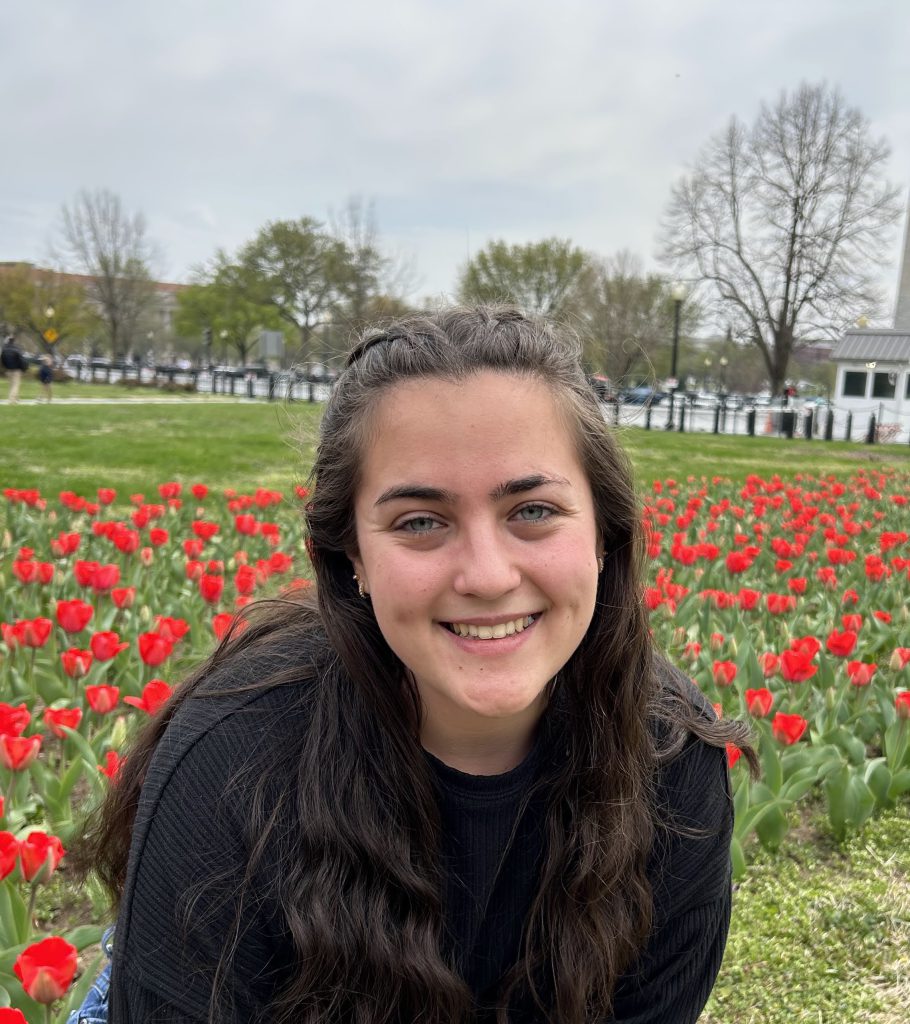
Juliet Shires is a rising junior at San Diego State University studying English with minors in Political Science and French. She is passionate about making meaningful policy changes accompanied by comprehensive educational programming. Juliet is excited to be working with Sahiyo to join the fight against gender-based violence, bringing marginalized voices to the forefront. When and how did you first get involved with Sahiyo? I began my time at Sahiyo as a policy intern at the end of March 2024. I found Sahiyo because I was looking for internships where I could get involved with policy work. I wasn’t searching for advocacy around a particular issue but when I found Sahiyo and looked more into their work, I knew it was something I wanted to be involved in. What does your work with Sahiyo involve? My day-to-day work with Sahiyo can take many different forms. Most of it revolves around Sahiyo’s advocacy work with several state coalitions to pass or improve laws around FGC. This can take the form of attending meetings and interviewing coalition members in order to write blog posts highlighting the work that the coalition is doing. Most recently I have been planning the “CA Coalition – FGM/C in California – Past, Present, and Future” webinar. The aim of which is to grow the policy work we are doing in California. This webinar should take place in early August. In the Washington coalition, I have aided in the implementation phase of Senate Bill 5453, which was passed last year, helping fill out plans going into next year and researching how other states have implemented their own FGC laws. How has your involvement with Sahiyo impacted your life? I have learned so much already in my time with Sahiyo. From the importance of listening to survivors, to realizing just how many people and communities are impacted by FGC. Furthermore, Sahiyo has shown me how much I enjoy working on single-issue policy. What this means is that my work at Sahiyo revolves around FGC, allowing me to focus on helping to support policy that revolves around a specific issue, which leads to policies that are better attuned to addressing FGC. What words of wisdom would you like to share with others who may be interested in supporting Sahiyo and the movement against FGC? Just get involved in any way you can, and in whatever way you have the capacity to do so. The most intimidating step is always the first, so I think it’s important to just jump right in with advocacy, and take the time to learn about the issue. Related: Volunteer Spotlight: Programs Intern Sophia Jones Staff Spotlight Community Engagement Coordinator: Samman Masud A conversation with Washington activist Absa Samba: SB 5453 a product of collaboration and persistence Washington State becomes 41st state to pass law against FGM/C
Volunteer Spotlight: Programs Intern Sophia Jones

Sophia is an undergraduate student at Emmanuel College, pursuing a bachelor’s degree in developmental psychology, with a minor in sport management. She is passionate about learning, advocacy, and education within the human rights sphere. She is excited to join Sahiyo and be part of an organization that uplifts women and is working to enact change. What was your experience of learning about FGC for the first time like? I remember being acutely aware of female genital mutilation during high school and early college. I didn’t truly understand the practice and its implications until I joined Sahiyo. As I completed my onboarding, I remember feeling heavy and uncomfortable. It was difficult to reconcile all of the information I was presented with and understand why this practice continues. I found myself intrigued and researched any information I could to develop a greater understanding. When and how did you first get involved with Sahiyo? I first heard about Sahiyo through a posting on my college’s job board. I was looking for an internship and had just completed a course entitled Crimes Against Humanity and was motivated to become a more educated and involved world citizen. To me this means being more actively involved and informed about various social justice issues. I value hearing from those directly impacted by issues and finding ways to support them. After reading more about Sahiyo and their mission, I decided to apply and join the organization as an events and programs intern. What does your work with Sahiyo involve? As an events and programs intern, I work with Sahiyo to develop and execute webinars on topics related to FGC. I have spent the past several months researching and planning for a webinar on quiet activism and the psychosocial impacts of FGC. Additionally, I support the programs team with education and outreach initiatives such as trainings, webinars, and advertising the Asian Women’s Shelter FGC Hotline. I also have assisted with developing materials for print and social media. How has your involvement with Sahiyo impacted your life? My time with Sahiyo has been invaluable to my development as a professional and a person. Sahiyo and all of the individuals who I have had the pleasure of working with have taught me so much. It has been a privilege to be trusted with hearing survivor’s stories and being able to work as an ally and an advocate to end FGC. This experience has helped me to recognize how important social justice and advocacy is in my career and personal goals. What words of wisdom would you like to share with others who may be interested in supporting Sahiyo and the movement against FGC? I would encourage people to let themselves be uncomfortable and recognize that they won’t know everything. As an individual who has not personally been touched by the practice, I focused on listening to survivors and community members. By listening to those with personal experiences, it is easier to acknowledge and respect the cultural and traditional roots within practicing communities. Centering survivors and providing support for them is my biggest recommendation for those who are interested in supporting Sahiyo and the movement against FGC.
Sahiyo’s Silent Auction Donor Spotlight: Zehra Patwa
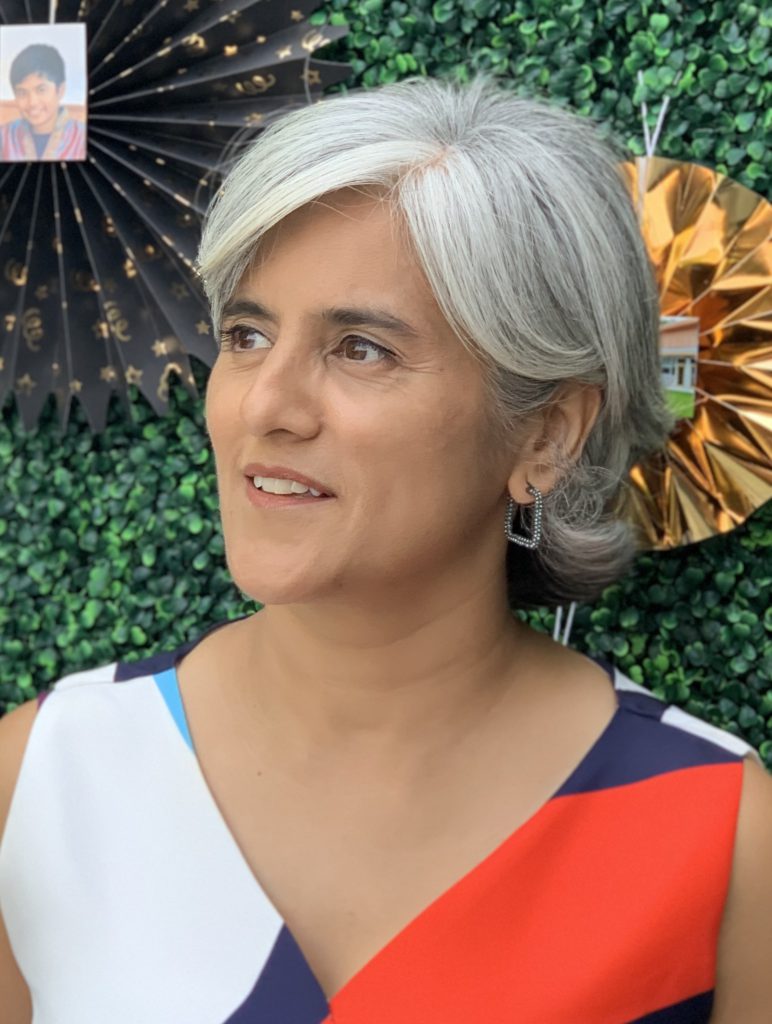
Sahiyo U.S. will host its second annual Women’s Day Celebration & Silent Auction with the goal of raising $15,000 in support of our work to end female genital cutting. The auction will open on Wednesday, March 6th, 2024 and close on Sunday, March 10th, 2024. During this five-day fundraising event, we’ll celebrate women’s voices with comedy, video spotlights, stories, and entertainment. We’re incredibly grateful to all of our generous sponsors and supporters who have contributed some wonderful auction items. To uplift their work and thank them, we’re highlighting a few and why they support Sahiyo. And if you, too, would like to contribute in some way, click here to donate auction items, money, or sponsor the event. Today, we’re profiling Zehra Patwa, who serves on Sahiyo’s U.S. Advisory Board. She is also the co-founder of WeSpeakOut, an organization that advocates for Bohra women and their rights. WeSpeakOut is particularly focused on ending FGM/C in the Bohra community and banning it altogether. When and how did your involvement with Sahiyo first begin? After I found out that khatna (FGC) was happening in my community, my cousin put me in touch with a WhatsApp group of several Bohra women [in 2015], which included the founders of Sahiyo as well as the future founder of WeSpeakOut. I was intrigued because I had never heard anybody talk about the practice like this. All the conversations I’d previously had about cutting with female members of my family were like, “It just happens. You just do it and you just move on with your life.” But in this WhatsApp group, people were talking about how to stop this generations-old practice. It was really refreshing to be with a group of Bohra women who were not going to take it any longer and were like, “we’re not going to let this happen to our daughters. We’re not going to let it happen to any girls.” Typically, Bohra people are quite compliant – we tend to be peaceful and don’t want to rock the boat. We’re afraid of what people might think, so the conversations in this group were very powerful. So, that’s how it all started, and now I’m on the Advisory Board! Mariya [Taher] has been an incredible inspiration. She has really helped me develop as an activist, and the Activist Retreat in particular has helped me. I think the retreat has been one of the highlights for me personally in my activism, so, that’s why we need the auction to keep these programs going. Why did you decide to become a donor for Sahiyo’s Women’s Day Celebration and Silent Auction again? What does giving to Sahiyo mean to you? I have been connected with Sahiyo since close to its inception and I’ve seen what an impact it’s made, and continues to make. Sahiyo as an organization has become so well-organized and expansive in its reach, and through its work, many people are recognizing that FGC is a practice that happens right here in the US. The more impactful Sahiyo becomes, the fewer girls get cut and the more girls are protected. I know many people have benefited from Sahiyo’s programs, survivors and activists alike. As activists, we very often keep on, burn out, rest, and then do it all over again, but Sahiyo and programs like the Activist Retreat have allowed us to carry on and not get burned out. It’s really important to know that there is support out there as that keeps these important conversations going. What did you donate or contribute this year? I’m hosting a watch party again this year and my two artist friends are working on pieces for the auction. They both donated pieces last year, both of which were very popular so I’m excited to see what they come up with this year! How would you like to see your donations help Sahiyo grow? I’d like to see Sahiyo become an independent nonprofit. I think by being an independent nonprofit, we’ll be able to do so much more in terms of certain grants and certain programs that we can apply to. Being a fiscally sponsored nonprofit limits us a little bit and I think we’ve grown to a point where we’re really ready to become independent. I think we’re in a really good place and that will then extend our reach even more and allow us to have that kind of wider exposure, which would lead to greater social change. Why do you think others should donate to Sahiyo? Everyone should donate to Sahiyo because it is doing such good work that impacts so many people. I think the impact is even greater than we recognize because this practice is such an underground issue. It’s not something people openly talk about, but I’ve had people pull me aside to tell me, “I can’t say anything publicly, but I really support the work you do.” And that’s really powerful. So I think there are a lot more people impacted by the work than we even know and I think that will really help to eliminate the practice down the road. By supporting Sahiyo, more people can be reached and even if people don’t admit in public that they won’t cut their daughters, if they decide to stop the practice in their families, this harmful traditional practice will eventually die out. Related: Zehra Patwa on Sahiyo and the Coalition to End FGM/C’s recent panel discussion with Connecticut legislators – and why it was a positive step forward I don’t remember my khatna. But it feels like a violation Read about our other inspiring supporters in our Silent Auction Donor Spotlight 2024 series
Staff Spotlight Community Engagement Coordinator: Samman Masud

Samman received a Bachelor’s in International Relations and her Master’s in Interdisciplinary Studies with a focus in Human Rights and Women & Gender Studies from George Mason University. Her graduate research explored the intersection of human rights advocacy and social media platforms in light of the #Metoo movement and the possibilities of transnational feminist solidarity networks in the digital media age. Samman is driven by her passion for local and global social justice movements and imagines a feminist future, one that is free from patriarchal violence and emancipatory for all people. In the past, Samman has been affiliated with Amnesty International USA in various capacities, where she supported campaigns on violence against women, migrant and refugee rights, death penalty and other human rights violations in the U.S. and abroad. Samman is excited to utilize her experiences in human rights advocacy, particularly her strengths in gender justice and intersectional feminist activism to address female genital cutting in her new role as the community engagement coordinator for Sahiyo. When and how did you first get involved with Sahiyo? I first got involved with Sahiyo in the summer of 2023 when as the Community Engagement Coordinator. Previously I had briefly explored the issue of FGC in various classes during graduate school while studying Women and Gender Studies, but I had never studied the topic as exhaustively as I would have liked to. In one of my courses, I read an academic paper where sociologists presented FGC as an issue of feminist agency and choice, likening it to cosmetic plastic surgeries. Other times, I found the sensationalized framing of FGC by human rights groups and legacy media to be problematic in how it recreated racist tropes about communities where FGC is practiced, further marginalizing at-risk groups and alienating them. So when the opportunity at Sahiyo came along, I became eager at the prospect of working for a survivor-led organization, since community-led movements can challenge false narratives and include a culturally sensitive approach that is vital in the field of gender-based violence work. What does your work with Sahiyo involve? I’m responsible for overseeing the Activists Retreat program, an annual in-person as well as a virtual event in which anti-FGC activists and survivor-advocates come together from all over the U.S. to discuss activism strategies on how to better mobilize more advocates working to address FGC within South Asian communities. In addition to assisting with the logistics of the retreat planning, I dedicate the rest of my time fostering relationships with a community of activists and assisting them in their anti-FGC activism. I do this by supporting their advocacy needs, whether it is through virtual alumni network events like quarterly meet-ups or book club meetings, or providing them with essential resources and news about FGC-related developments. Bhaiyo, our male engagement program is another project I support. In this program I oversee our male ally network and build new relationships with individuals or activists who want to be allies in our mission to end FGC. I hope to grow this network significantly, so a larger community of men can discuss the harmful impacts of FGC within their circles, especially if they belong to communities where FGC is practiced. Gender-based violence is a function of patriarchy, and without male allies who can be agents in disrupting patriarchal norms, our work would be impossible. How has your involvement with Sahiyo impacted your life? Before Sahiyo, my knowledge about FGC was limited and only theoretical. Now I get to see firsthand the practical implications of FGC, in my encounters with survivors and how FGC has profound long term psychological and medical consequences. Through my daily engagement with Sahiyo’s collaborations and with other sister organizations and other growing partnerships, I’m now more aware of FGC advocacy, and the landscape of gender-based violence work in general, as well as of the many resources that are available to communities where FGC is prevalent. As such, the need to publicize Sahiyo’s work becomes all the more urgent. Finally, my understanding of activism continues to grow from my interactions with different activists throughout the year. I find that all types of activism are impactful, as our Executive Director, Mariya Taher emphasizes understanding “activism on a spectrum” and how it can look different for each activist. Similarly, I was not aware of the concept of ‘public vs. private’ activism that Sahiyo’s work and activists place immense value on. Modern day digital activism, albeit critical to mobilizing masses for human rights issues, sometimes has confined us to thinking of activism only in terms of likes, tweets and viral stories. However, private activism can be a just as powerful tool in educating members of communities about a particular issue, as I saw in my first Activists Retreat in September 2023, where the privacy of an insular activist community was respected and led to important conversations about FGC prevalent within the Bohra community. As such, both public and private activism can drive incremental change and lead to progressive reform. The personal is political, indeed. What words of wisdom would you like to share with others who may be interested in supporting Sahiyo and the movement against FGC? The movement against FGC is equally critical as any other issue in gender-based violence work. We are working to mobilize a large body of activists to bring our movement to the forefront and push the remaining states to pass legislation banning FGC in the U.S. I encourage anyone interested in advancing women’s rights and gender justice to explore Sahiyo’s anti-FGC work as part of the larger gender based violence effort. Our small but mighty team at Sahiyo and the network of amazing volunteers and interns welcome and support all advocates, regardless of their expertise about FGC, to join this important cause.
